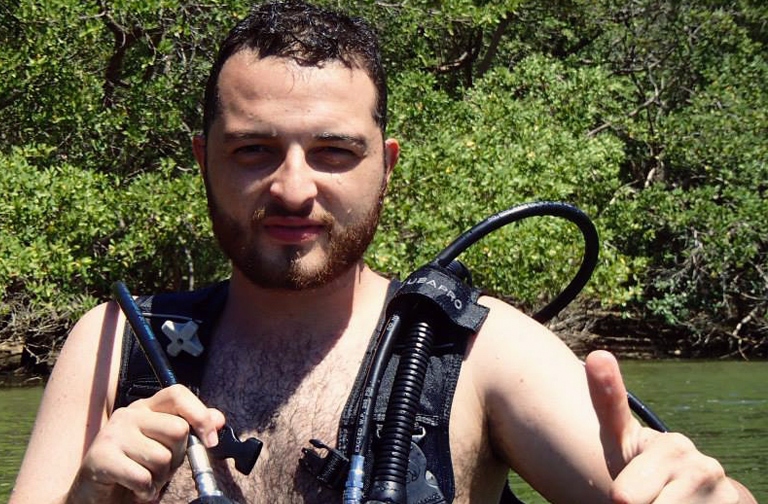A biologist from Colombia almost went to jail for 8 years due to the publication of theses of someone else's article on Scribd

Colombian biology graduate student Diego Gómez (Diego Gómez) six years ago decided to publish abstracts for someone else's article, the materials of which he liked. He made the theses, deciding to share them with other people on the service of publishing various Scribd documents. Soon after the publication of the publication, the administration of the service changed the rules , inviting non-registered users to pay $ 5 per download of any material.
When Gomez found out about the changes in the Scribd rules, he removed the document from the service. But the author of the article saw the theses for his material earlier, and, having decided that the biologist decided to make money on someone else's intellectual property, filed a lawsuit, after which Gomez was charged with copyright infringement.
Diego's sphere of interest is wide enough. He studies the biodiversity of the region by developing methods to preserve endangered animal and plant species from South America. Also, the Colombian is trying to replenish their knowledge in this area, but the trouble is that most high-quality scientific works are available only for money in specialized scientific journals.
His university cannot afford an expensive subscription to well-known scientific journals, so one has to do on its own. A young scientist buys the necessary materials for his money, and sometimes Gomez has to abandon scientific expeditions in order to save money on scientific literature. He receives basic materials for his work in libraries and open archives of scientific literature.
Over time, Gomez began to work more actively on the Network, where there are a large number of publications on topics of interest to him, plus the network makes it possible to communicate with colleagues. Sometimes graduate students come across and open publications that are laid out in the network by scientists who understand that the scientific literature should be in the public domain. If you use such articles, you only need to fulfill the usual obligations - to indicate the source with all the necessary details.
In 2011, Gomez came across a very valuable publication for him. The graduate student, without thinking twice, composed the theses and put them on Scribd, hoping that these materials would be useful to his colleagues. But another scientist, the author of the article itself, decided that a Colombian graduate student wanted to receive money by issuing someone else's publication for his own and filed a lawsuit in court. The author in question is American. And between Colombia and the United States, there is a special agreement that allows you to punish violators of copyright, even if the violator is from another country.
Gómez was lucky that the legal association Fundación Karisma took up his defense in court. This organization has tried to prove the innocence of Gomez, in which she succeeded. It is worth noting that Colombia does not have a detailed copyright law. There is an outdated law on authors' rights. This law and related documents appeared more than 20 years ago. They stipulate a number of specific situations that are very rare in our time, and are not applicable to the Internet at all. However, part of these laws was used in the trial against Gomez.
Fortunately for him, the lawyers were able to prove that in laying out the theses of the article, Gomez had no malicious intent. In addition, there is another important nuance - the same lawyers managed to prove that the author of the publication was not harmed. As mentioned above, the material was originally posted on Scribd, when there was still no need to pay money for loading material.

Graduate student at Columbia University Diego Gomez
The court of Colombia, when considering all aspects of the case, decided to justify Gomez. Despite the fact that this country criminalizes copyright infringement, the article was considered inapplicable in this case. The judges found that the Colombian graduate student did not plan to earn money using someone else’s intellectual property, but posted abstracts so that other specialists could familiarize themselves with them.
It is worth noting that the publication that Gomez used to create theses was published back in 2006. The Colombian graduate student, in turn, posted the material on Scribd in 2011. According to the lawyers of Fundación Karisma, the fact that someone who published the work in the early 2000s believes that this material can be used for commercial purposes shows us the inconsistency of the mechanism for the exchange of scientific materials that exists today. The main problem is the law on copyright, which many consider to be an obstacle to the further development of science. It is necessary to reform the legislation, both international and local, in order to eliminate the negative impact of laws on science and its development.
All Articles